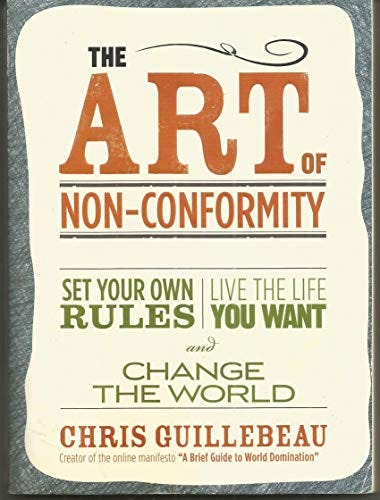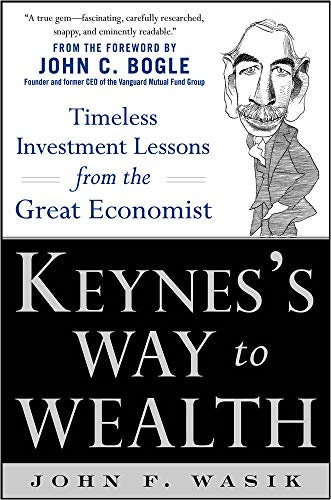On Living the Life You Want, Timeless Investment Lessons, and the Power of Thinking Without Thinking
Books that changed my thinking, my behaviors, and my life
Hello all!
Here is your weekly dose of knowledge goodness.
1. Entrepreneurship
The Art of Non-Conformity: Set Your Own Rules, Live the Life You Want and Change the World
Summary
The Art of Non-Conformity is an inspiring and provocative book that challenges the conventional wisdom of living a traditional life. It's particularly resonant for individuals seeking to break away from the norm, embrace their individuality, and live life on their own terms. This was one of the earliest books of the lifestyle design genre–and one of my favorites.
Guillebeau advocates for a lifestyle that defies the typical 9-to-5 job and societal expectations. He encourages readers to pursue their passions and create a life that is rich in experiences, rather than one that simply follows a prescribed script. The book is filled with practical advice, strategies, and stories from people who have successfully lived unconventional lives (some of these are dates based on the advance of technologies, but all are relevant). Guillebeau emphasizes the importance of self-reliance, personal goals, and the pursuit of what truly brings joy and meaning to one's life.
This is a manifesto for anyone who yearns to stray from the beaten path. It's an invaluable guide for those who want to live life on their own terms, find their own version of success, and make a positive impact on the world. The book serves as a powerful reminder that life is too short to live by someone else's rules and that true fulfillment comes from following one's own path, however unconventional it may be.
Principle: Inaction breeds doubt and fear. Action breeds confidence and courage. If you want to conquer fear, do not sit home and think about it. Go out and get busy.
Quote: Most men lead lives of quiet desperation and go to the grave with their song still in them -Henry David Thoreau
Quote: The great tragedy of life is not so much what we suffer, but rather what we miss -Thomas Carlyle
Quote: Sometimes the smallest decisions can change your life forever -Keri Russell
Quote: The greatest mistake you can make in life is to be continually fearing you will make one -Elbert Hubbard
Quote: Every man dies; not every man lives. -William Wallace
Quote: The ultimate measure of a man is not where he stands in moments of comfort and convenience, but where he stands at times of challenge and controversy. -MLK
Quote: The question is not who is going to let me, it's who is going to stop me. -Ayn Rand
Author: Chris Guillebeau
Themes: Entrepreneurship, Career advancement, Productivity, Personal development, Living a full life
My personal notes from the book
2. Personal finance
Keynes's Way to Wealth: Timeless Investment Lessons from the Great Economist
Summary
Keynes's Way to Wealth is a fascinating exploration of the investment strategies of John Maynard Keynes, one of the most influential economists of the 20th century. This book is particularly valuable for investors, economics enthusiasts, and anyone interested in understanding how economic principles can be applied to personal wealth management.
The book delves into the lesser-known role of Keynes as a successful investor who managed both his own and his university's (King's College, Cambridge) finances. Wasik reveals how Keynes's investment philosophy, which was far ahead of his time, combined deep economic understanding with practical market insights. The author examines Keynes's investment strategies, including his shift from a top-down macroeconomic approach to a bottom-up analysis of individual companies. Wasik also explores Keynes's emphasis on long-term investing, diversification, and the importance of being contrarian.
This is a guide to understanding how deep economic insights can be translated into practical wealth-building strategies. The principles laid out in the book are timeless, underscoring the importance of patience, diversification, and informed decision-making in the pursuit of financial success.
Insight: Remember that animal spirits are the soul of volatility, which never goes away. If you can't take the risk of being overwhelmed by the negative force of animal spirits, you need a healthy portion of your portfolio in bonds, TIPS, and cash. Be careful with leverage, and don't follow the financial blather on cable channels. And if you're a long-term investor–and can handle market risk–then hold on to stocks with value and dividends, as Keynes did. You'll be rewarded when the mood swing shifts the market in your direction.
Principle: Keep in mind that the highest dividend yields are from companies that the market considers the riskiest investments. Be a tortoise: slow and steady wins the race.
Principle: The object of investing is to ensure prosperity, not to become obsessed with making money. It's the hope for a secure and comfortable future.
Author: John Wasik
Themes: Personal finance, Investing, Wealth creation, Economics
My personal notes from the book
3. Decision making
Blink: The Power of Thinking Without Thinking
Summary
You know I love Gladwell by now!
Blink is a thought-provoking exploration of the cognitive processes behind the seemingly instantaneous decisions we make every day. This book is ideal for those interested in psychology, decision-making, and the mysteries of the human mind.
Gladwell delves into the concept of 'thin-slicing' – the ability of our subconscious to find patterns in situations and behavior based on very narrow slices of experience. Through a series of engaging anecdotes and scientific research, he illustrates how these snap judgments can be more accurate than the decisions we make after thorough analysis. However, he also warns of the dangers of snap judgments, especially when they are influenced by our unconscious biases and prejudices. The book covers various fields, from psychology and neuroscience to consumer behavior and military strategy, to demonstrate the impact and mechanics of split-second decisions.
This is a compelling read that challenges the way we think about thinking. Gladwell's engaging storytelling and richly researched content make complex cognitive theories both understandable and relevant to everyday life (this is one of the reasons why I enjoy everything Gladwell writes). The book not only entertains but also educates, providing valuable insights into the strengths and limitations of our minds and encouraging a more thoughtful approach to our intuitive powers.
Principle: Being able to act intelligently and instinctively in the moment is possible only after a long and rigorous course of education and experience.
Insight: We have come to confuse information with understanding.
Insight: People are ignorant of the things that affect their actions, yet they rarely feel ignorant.
Insight: People don't sue doctors they like. The surgeons who had never been sued spent more than three minutes longer with each patient than those who had been sued did.
Insight: Most salespeople are prone to the classic Warren Harding error. They see someone, and somehow they let the first impression they have about that person's appearance drown out every other piece of information they manage to gather in that first instant.
Insight: Optimal performance occurs when heart rate is between 115 and 145
Author: Malcolm Gladwell
Themes: Decision making, Human psychology, Personal development, Entrepreneurship
My personal notes from the book
That’s a wrap. Thanks for reading! And thank you for being a part of the 3BT community.
Please continue to share with me the books that changed your life! And let your friends, colleagues, and the strangers you meet at 7-11 know about 3BT.
Best,
Adam
Previous Three Book Thursday editions
All Three Book Thursday Book Links
All Three Book Thursday Personal Notes




